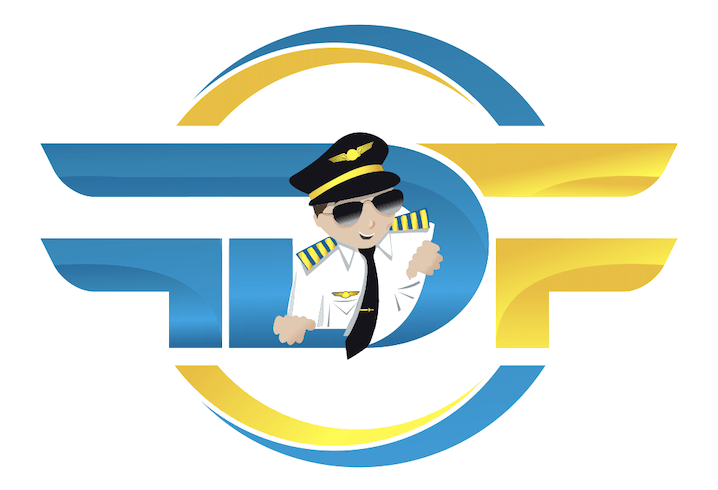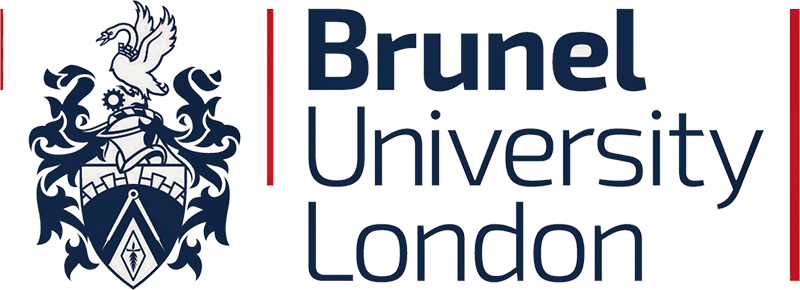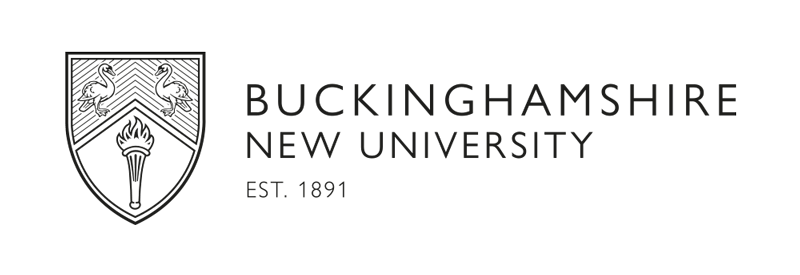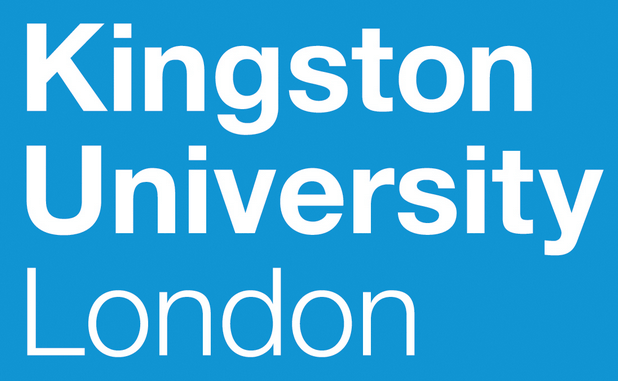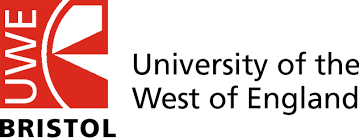Do I Need to be Good at Maths to be a Pilot?
Do I need to be good at Maths to be a pilot?
You need to be reasonably good at Maths in order to be an airline pilot, but you don’t need to excel at it. Being able to complete mental arithmetic quite quickly is important as you are often required to make relatively easy calculations in your head whilst flying.
The most commonly used mental arithmetic calculations are simple addition, subtraction, multiplication and division. If you are good at these types of calculations, you can quickly work out things like how much fuel you need for a flight or are burning an hour, speed distance and time calculations, and the rate of climb or descent needed.
To get an Air Transport Pilots Licence (ATPL), you need to pass a number of theory examinations. Some of these exams, like General Navigation, requires you to understand and apply Maths concepts like Trigonometry and Pythagoras theorem. However, in reality you don’t tend to make calculations relating to these concepts on a daily basis when flying a commercial jet.
What grade do I need in Maths?
Essentially, if you have achieved a good grade in Maths at GCSE level or the Secondary/High School examinations, you should be fine. If you haven’t achieved this then don’t worry, it takes some people a bit longer to grasp Maths and you may find that you get much better at it as you get a bit older. Most airlines and flight schools will want to see that you achieved an equivalent of grade C or level 4 or above in Maths, but if you get good A-Level grades or a University degree, then your GCSE / Secondary grades become less important.
The single most used calculation applied to every flight is the application of the 3 times table to calculate, using a rule of thumb, if you are too high or low when descending. This is simple calculation of removing the last three digits of the altitude and multiplying the remaining number by 3, to calculate roughly how many miles you need to descent. For example, at 30,000 feet, you would multiply 30 by 3 which gives 90. This means at 30,000ft, you need roughly ninety nautical miles to descend, assuming a constant 3-degree glide path. You don’t have time to use a calculator to work these calculations out, so you need to be able to do them quickly in your head.
Flight School & Airline Entrance Exams
Many flight schools and some airlines require you to complete a Maths test as part of the selection process. These tend to be mental arithmetic based tests where you can’t use a calculator.
Examples of Pilot Maths Calculations
Examples of the type of calculations you have to make when piloting a commercial aircraft include:
- If Air Traffic Control tell you to descent from 20,000ft to 14,000ft and reach that level within 3 minutes, what is the minimum rate of descent you require? The actual calculation is quite easy, it’s just knowing what to do with the information. All you are doing is taking the total altitude you need to lose (which is 6,000ft) and dividing it by 3 (the number of minutes in which you need to descend). The answer is therefore 2,000ft per minute.
- If you are climbing at an average of 1,800 feet per minute, how long will it take you to climb 9,000ft? The answer is 5 minutes (9,000 divided by 1,800).
- If you are burning 2.4 tons of fuel an hour, how much fuel will you burn in 2 hours and 30 minutes? The answer is 6 tons. (2.4 multiplied by 2.5).
- If you are flying at an average speed of 240kts, how long will it take you to fly 720 nautical miles? The answer is 3 hours (720 divided by 240).
- If you take-off at 16:15 and landed at 19:48, how long was the flight? The answer is 3 hours and 33 minutes.
Interview a Pilot – For School Projects
School Interview Questions For Pilots
At FlightDeckFriend.com, we receive a lot of requests for interviews with our pilots for school projects. Whilst we are very happy to be contacted to complete such interviews (over email correspondence) we have provided the questions and answers for questions we regularly receive.
Tell me a bit about yourself…
I’m a pilot operating for a well known UK airline. I’ve operated as a First Officer (co-pilot), Captain and Training Captain (a Captain who instructs and supports other pilots). I’ve also flown both Short Haul and Long Haul operations.
How did you get to become a pilot?
I always wanted to be a pilot. An aeroplane was one of the first things I could draw! After going to college and Sixth Form, I went to University and studied Aviation Technology with Pilot Studies. I then completed my commercial flight training before going onto join a low cost airline. I then joined a legacy carrier. I’ve been with my current airline for around 7 years.
How much do you earn?
Pilots wages vary significantly depending on rank, seniority within the company and type of airline. First Officers at an established airline flying a commercial jet can typically expect to earn approximately £40,000 – £120,000 whilst Captains will get between £90,000 – £250,000.
How many hours do you work a day / week?
It varies every day. Some days 2 hours, others 16. Some weeks 20 hours, other weeks over 50 hours. We have strict limits on the amount of hours we can fly – we can’t exceed 900 flight hours a year. This doesn’t include “duty” time such as preflight and post flight paperwork.
Do you get holidays?
Yes, about 6 blocks of between 9 – 14 days off a year. We also get the use of staff travel offering discounted flights and hotels.
Do you have to be particularly skilled?
Yes, but they are skills you can work to acquire. When airlines recruit pilots, they are looking for future Captains. Therefore, they want people who can demonstrate good leadership, teamwork, decision making and communication skills. You’ll also need to have a good standard of Maths, Science and English.
What key skills are required for the job?
Team work, communication, prioritisation, leadership and decision making are a few of they key attributes. A good grasp of Maths and Physics helps.
What training is required?
You need to pass 14 theoretical examinations and complete roughly 150 hours of flight training, passing multiple flight tests before you can apply to become a commercial pilot. You are then training on a specific commercial aircraft before going on to fly passengers. The process usually takes approximately 1 and a half to 2 years.
What subjects should I choose at school?
I would recommend choosing Science and Maths based subjects. Specific subjects that would be useful are Maths, Physics, English, Chemistry, Biology, Geography and IT. However, there is no specific requirement; you can become a pilot with good grades in any subjects you like as long as you have the right skills and attitude.
What do you like most about your job?
The daily variety and challenges that every flight brings. Every flight is different, whether it be the passengers, colleagues, aircraft, weather or destination. No day is ever the same and I wouldn’t it to be?
It’s also a great privilege to travel to far flung destinations across the globe. I’m lucky enough to fly an aircraft that goes anywhere from Australia to South America so I really do get to see the World.
What do you least like about your job?
Getting up at 3am! But at least your day is normally finished by about midday. Flying through the night can also be difficult, but we usually get a bit more time at home compared to a lot of jobs to recover from the nights out of bed.
What is your favourite destination?
The approach into London City airport is absolutely spectacular, especially when landing on the easterly runway. You fly at 2,000ft above central London, something few people get to experience.
Should I Go To University Or Not?
I want to be a pilot – should I go to University?
Whilst holding a degree was common place amongst airline pilots in the past, it is becoming more and more common to see prospective pilots going straight from A-Levels or secondary education in to commercial flight training. With the fairly recent increase in University tuition fees it seems this trend will likely increase further in the coming years.
There are arguments for both obtaining and not obtaining a degree before embarking on your commercial flight training.
The arguments set out below are based on you living in a country where you have to pay for your own tuition fees. If you live in a country where going to University is free (or you only need to pay for your living expenses) we would recommend going to Uni.
Fees & Debt
A typical three year degree may now cost over £/€ 30,000 on tuition fees alone. Once accommodation and living costs are added onto this figure, huge student debts are becoming common place among graduates.
With integrated flight training costing around £/€ 100,000 any may airlines requiring you to pay for your own type rating (around £/€ 25,000) you could find yourself in over £/€ 150,000+ of debt before you’ve even got your first job.
Even if you completed modular flight training (the cheapest way to complete flight training) and your type rating is paid for by the airline (you’d be very lucky!) then you’d be in £/€ 100,000 of debt.
You tend to earn a good salary as a commercial pilot so you will end up being required to pay all of your student loans back, unlike others in lower paid jobs where the debt eventually gets written off. Equally, as you earn a good salary, if you have UK student finance debt and work for a UK airline based, a significant amount of money will be taken from your salary every month to pay the debt back.
As holding a degree is no longer a minimum requirement to join most European airlines as a pilot, it’s a perfectly fair argument to say that accumulating so much avoidable debt simply isn’t worth it. Spending a bit extra on loss of income and loss of medical insurance can cover your debts if the worst happens, meaning you might not think having a degree as a back-up plan is worth it.
Having a backup plan
There is however, an equally compelling argument for obtaining a degree.
Unfortunately one of the risks of being a pilot is that we can lose our class one medical at any time for a whole range of reasons which can put an end to our flying career. Equally, the airline industry is also notoriously volatile and cyclic; just look at the number of pilots made redundant due to the Covid-19 pandemic.
Unfortunately there will always be airline failures as economies inevitably contract from time to time. For example, Flybe, XL Airways, Fly Globespan, Silverjet, Spanair and BMI are just a handful of airlines that have folded over the last decade or so, resulting in the loss of hundreds of pilot jobs. As many find out the hard way, it can be years until one finds employment as a pilot again, if ever.
If you find yourself in such a position, it is vitally important to have a backup plan. To be able to go directly in to employment that has a reasonable rate of pay typically requires a degree. it might be expensive, but a degree is a good backup plan if your career doesn’t pan out as hoped. Having loss of income insurance can of course help, but you still have a life to lead outside of aviation.
The University Experience
There’s no doubt that many people class their time at University as some of the best years of their life. It offers more than just an academic qualification, it offers life experience and an opportunity to develop as a person and build relationships. People mature at different speeds so not everyone is ready to start flight training straight after A-Levels (secondary education) and might need a few more years to develop the skills and personality needed to become employable to an airline.
It is worth noting that while many European airlines do not require a degree, it is still a mandatory requirement for many foreign airlines, particularly in the United States, the Far East and Asia.
Which degree should I choose?
If you’ve decided university is for you, choosing which degree to study and at which University is not easy.
There are plenty of degrees being offered by universities which are specific to aviation and airline pilot training (we’ve listed them here).
If you are seriously thinking of becoming a pilot and love aviation, studying an aviation degree is obviously going to be enjoyable and you tend to do well at subjects you enjoy studying. Having an aviation degree will clearly put you in a good position to commence your flight training after University.
Whilst airlines do ‘like’ aviation degrees, they are equally impressed with other core subject degrees (science, engineering, maths etc.). From a recruiters point of view, the final grading you achieved is usually more important than the subject you studied. For example a 1st class degree in media studies will probably be viewed more favourably than a 2:2 in an aviation subject as it shows you are able to apply yourself very well and to a high standard. This is an attribute which you will need to demonstrate throughout your aviation career.
Something else to consider is what type of degree you would fall back on should the worst happen and you can’t fly any more. Having a degree in a separate discipline which is unrelated to aviation may open up more employment opportunities than if you held an aviation specific degree. For example, having a degree in accounting or law is likely to open up potentially higher paid opportunities than an aviation degree would if you can no longer be a pilot.
Conclusion
There are both pros and cons to both the decision of whether to go University or not and what subject you should study if you do decide to go.
For most people, the choice is avoiding the accumulation of a large debt unnecessarily versus getting the university experience and all that entails along with (hopefully) something to fall back on if your career doesn’t take off as planned. It’s very subjective and ultimately a very personal decision – everyone’s situation is different.
What Should I Study at School to Become a Pilot?
What subjects should you study at school to become a pilot?
In order to become a commercial airline pilot, just about all airlines require you to have at least 5 GCSE’s that are grades A – C (or equivalent) including Maths, English and Science. At school, try and work hard in all subjects but in particular these three core areas. These are the very minimum qualifications that you should look to achieve.
Other than the core areas of Maths, Science and English, your choice of subjects at secondary education level doesn’t matter too much. Geography is likely to be a good choice for obvious reasons, but even subjects like music or art are likely to help you become well-rounded individual, something which the airlines are looking for.
Extra-Curricular Activity Ideas for Prospective Pilots
Whilst at secondary school or equivalent education, there a number of extracurricular activities that you can do which will help support development of the skills and attitude you need to become a pilot. It will also help to ensure that your CV stands out above the competition. Airline recruiters like to see someone who has actively been involved in activities above and beyond just simply turning up at school. These include:
Air Training Corps (Air Cadets) / Army / Navy Cadets – Joining your local Air Training Corps (ATC) squadron or other armed forces cadets is a big positive and you’ll find many pilots were once part of this organisation. It will help you to develop a skill set that is highly transferable to the role of commercial pilot, such as furthering your leadership, teamwork and communication skills. It will also give you the opportunity to have a go at flying for free to give you a taste of what flying a plane is really like.
Sports Teams – Get involved in a school or local sports team. This demonstrates the ability to work within a team and form social relationships, improving communication skills.
Duke of Edinburgh (DoE) Award – This covers a range of skills and attributes many of which are transferable to be successful in your flight training and flying career. Airline recruiters love it!
Scouts – a team-based organisation who take part in adventure exercises etc. You can join from a young age before transitioning to the Air Training Corps.
What should I study at A-Levels / Higher Education if I want to become a pilot?
Some airlines also require you to hold some A-Levels or a higher education equivalent. Regardless of which airline you are looking to apply to, we would recommend you complete your A-Levels, as most people who you are competing with for a position will hold such qualifications and you will be too young to apply for a cadet program on completion of your GCSEs. It also gives you the opportunity to build up some valuable life experience, such as having a part time job whilst studying.
We would suggest you choose some a couple of strong core subjects for your A-Levels / higher education, such as Maths, Physics, Chemistry, English and Geography. These subjects not only look good on paper, but will provide you with a sound theoretical foundation from which to go on and complete the theory side of your flight training, which is heavily science and maths based.
It’s fine to choose other subjects as well, airlines are seeking well rounded individuals, but a couple of core subjects is probably a good idea.
You should be looking to achieve a minimum of a grade C in all of your A-Level subjects.
During your A-Levels / higher education, try to keep involved in the extra-curricular activities as described above.
What Should I Study at University to Become a Pilot?
There are now lots of Aviation specific degree programs which incorporate commercial flight training so it is possible to obtain both a degree and commercial pilots’ licence at the same time.
However, whether to actually pursue this option is down to individual circumstances and the decision of whether or not to go to University is not an easy one. There are advantages and disadvantages to either option which are discussed on our dedicated page.
Ultimately you could start your very expensive flight training having already accrued £/€ 30,000 of debt if you live in a country where you pay to go to university. As pilots earn high salaries, you will almost certainly have to pay all of this debt back and it will be quite a chunk out of your payslip! Given you can start your flight training without a degree, is the extra debt and potential lost earnings worth it?
On the other side of the argument, if it all goes wrong, such as losing your pilot medical or get made redundant (due to something like the Covid-19 pandemic), if you’ve already got a degree at least you’ve got something to fall back on to support you getting a job outside of the aviation industry.
Our advice is that if you do choose to go to University, chose a subject that genuinely interests you as you are more likely to have a better experience and obtain a good classification. It might be beneficial to choose an aviation-based subject, but it isn’t essential. Airlines and flight training organisations would be happy to see a well recognised degree in a good subject on your CV, and perhaps consider one which gives you a fall-back career.
What Qualifications are Required to be a Pilot?
What Qualifications / Education do you Need to be a Pilot?
To hold the licences required to fly a commercial passenger jet, you do not need any formal academic qualifications. However, you may need some level of academic qualifications to attend a specific flight school or join a particular airline.
To fly a commercial passenger aircraft as a First Officer with an airline, you generally need the following credentials as an absolute minimum:
- A frozen Air Transport Pilots Licence (ATPL) which consist of a CPL / MEIR / MCC & ATPL Theory (see what these are and how to get them here)
- A Class One Medical
- Be over the age 18
- Have a reasonable command of the English language
- Hold a valid, unrestricted passport
- Have the right to live and work in the country in which the airline is based
Academic Qualifications Required to Become a Pilot
Some airlines will require you to have a minimum level of academic qualifications to employee you as a pilot. As an absolute minimum, this typically requires completion of secondary school or high school education to a good pass level. In counties like the UK, this consists of 5 GCSE passes, grades A-C, including Maths, English & Science. In other countries this might be a Secondary School Certificate (SSC) to a reasonable standard.
Whilst some legacy airlines have previously required applicants to hold at least 2 A-Levels with grades A-C, this has been replaced with a minimum UCAS point requirement to ensure qualifications such as BTECs, apprenticeships, and international qualifications are considered.
easyJet requires that their pilot applicants to hold 5 GCSEs grades A-C, whilst others do not require you to have any academic qualifications to apply as a pilot. The Aer Lingus Future Pilot Program required applicants to have passed their Leaving Certificate in 6 or more subjects, and have at least 2 higher level subjects with a minimum of H5 grades in the Leaving Certificate.
In the United States and some Asian countries, it is typical that major airlines require you to hold a university degree level qualification (often consisting of 4 or more years of study) as a minimum requirement.
What level of education is flight training equivalent to?
The difficulty of the theoretical ATPL training is probably the equivalent of somewhere between GCSE and A-Level standard. Many people don’t find the ATPL theory syllabus to be particularly difficult, but do find the amount of information that you are required to process and retain, to be overwhelming at times.
Your academic abilities and learning style might help choose the route you take to getting a Commercial Pilots Licence. For example, if you complete a full-time integrated course, you need to absorb a huge amount of information in a short space of time when compared to a part-time modular course, where you can pace out your theoretical studies if you need. The intensity of the integrated courses is one of the reasons why some airlines have historically recruited cadets who have completed an integrated course; they have shown an ability to take on a huge amount of information in a short space of time, something which you will need to demonstrate when you first join the airline and complete their specific training.
I didn’t do well at school, can I still become a pilot?
Whilst you don’t strictly require any educational qualifications to hold a commercial pilots licence, if you are unable to achieve a reasonable standard at the core subjects (such as Maths & Science) at the secondary education level (GCSEs etc.), you may well struggle with the 14 ATPL theoretical exams.
That being said, everyone is different and some people are late starters. You may not have done particularly well at school but have gone on to gain the equivalent skills and knowledge through life and work experience. If this is you, becoming a pilot is still achievable providing you have developed enough knowledge about Maths and Physics before starting the course.
If in doubt about your ability to become a pilot, have a chat to the various flight training schools out there and see what they think. Most flight training organisations have entrance tests that must be passed in order to be accepted onto their course, and these are good at identifying individuals who might struggle with the training.
Flight Training Schools
Whilst you might not require any academic qualifications to obtain a Commercial Pilots Licence, if you want to get the qualification at a reputable flight school through a full-time integrated training program, some flight schools require you to have a minimum level of qualifications.
At somewhere like FTEJerez, they require at least 2 A-Levels at grade C or above or grade 4 or above in the equivalents such as Baccalaureate, Bachillerato, Highers, Leaving Certs., Maturitá etc. Whereas CAE only state that you must have completed your secondary education.
What qualifications should I be aiming for to become a pilot?
Whilst not achieving a high standard of education won’t necessarily put a stop to your aviation career, getting some good grades at a higher education level (A-Level or equivalent), will ensure that there are plenty of options for you in terms of flight training schools and then airlines to apply to. Given you can’t start your flight training until you are 18, you might as well seek to obtain some higher education level qualifications if you can.
Should I go to University?
Deciding on whether to go to university or not is quite a big subject and we’ve given it its own page.
UK University Aviation Degree Courses
If you are seeking to pursue a career as a Commercial Airline Pilot, one of the first things to consider is “ Should I go to University or Not?” If you’ve come to the conclusion that yes, that is the route for you, then read on.
Over the last 15 years, Aviation Technology, Management and Pilot Studies degrees have become more and more popular. There is now a wide range such degree courses offered Universities across Europe. We have compiled a list of these degree programs for you to look at. Want to list a course? Email us the details.
Brunel University London
Aviation Engineering with Pilot Studies MEng
General information: “Becoming a pilot is one of the most exciting and rewarding of career choices. This specialist degree provides an ideal starting point for you to train to become a professional pilot after graduation. It incorporates fundamental practice and theory, but also presents the opportunity to obtain a Private Pilot’s Licence (PPL) and to undertake training in a flight simulator.”
Fees – EU/UK Students: £9,250 a year
Fees – International Students: £17,500 a year
Entry Requirements: A-Level grades AAA including Maths & Physics
Flying: Initial 15 hours towards NPPL, additional cost £3,075
Duration: 4 Years (5 year sandwich)
Buckinghamshire New University
BSc (Hons) Air Transport with Commercial Pilot Training
General information: “If you want to qualify as a commercial pilot, this dynamic course covers the many areas of air transport management and prepares you for a successful career as a commercial pilot. It is one of only a few UK universities to have an FNPT II Flight Simulator, which you will use during the final year of your studies, helping you to prepare for the final phase of your flight training.
Unique to the UK Higher Education sector, Buckinghamshire New University’s programme will allow you to obtain a university degree and a frozen ATPL in just three years of full-time study – at a lower cost than doing them separately”.
Fees – EU/UK Students: £9,250 a year + ATPL costs
Fees – International Students: £14,250 a year + ATPL costs
Entry Requirements: 104-128 UCAS Tariff score
Duration: 3 years
Buckinghamshire New University also offer courses in the following:
- BSc (Hons) Air Transport with Helicopter Pilot Training
- BSc (Hons) Air Transport with Private Pilot Training
- BA (Hons) Airline and Airport Management
- MSc Aviation Security
Kingston University, London
Aviation Studies for Commercial Pilot Training Foundation Degree FdEng and BSc (Hons)
General information: “This exciting foundation degree provides the opportunity to gain a recognised higher education qualification while acquiring the knowledge and some of the skills you will need to become a pilot. On successful completion of the foundation degree, you can top up to a BSc (Hons) degree.”
Fees – EU/UK Students: £9,250 a year
Fees – International Students: £13,400 a year
Entry Requirements: 80 UCAS points / 2 A-Levels
Flying: Yes, require 20 hours towards teh PPL to commence the course
Duration: 1/2/3 Years
Staffordshire University (Stoke-on-Trent Campus)
Aeronautical Technology BSc (Hons)
General information: “In the first year of your Aeronautical Technology degree, you could learn to fly a glider. You could also learn about propulsion systems, covering gas turbine engines, rocket engines and internal combustion engines.
Other specialist modules include flight technology – involving the study of aircraft flight control systems – subsonic and supersonic aerodynamics, crash investigation, flight deck controls, instruments and displays, navigation systems, material properties and selection, and computer-based design, analysis and simulation.”
Fees – EU/UK Students: £9,250 a year
Fees – International Students: £10,900 a year
Entry Requirements: A-Level BCC or CCC plus C at AS Level / UCAS 112 points
Flying: No
Duration: 3 Years
The University of Sheffield
Aviation Engineering (Private Pilot Instruction) BEng
General information: “Modules cover aero propulsion, aerodynamic design, aircraft dynamics and control, computational aerodynamics and project management. You’ll also take ground training for flight and five hours of flight training. Your study includes some experience of flight instrumentation and an individual investigative project of your choice.”
Fees – EU/UK Students: Approximately £9,000 a year
Fees – International Students: No fees mentioned
Entry Requirements: A-Level AAB including Maths & Physics
Flying: Yes, individual arrangements made
Duration: 3 Years
University of Hertfordshire
Aerospace Systems Engineering with Pilot Studies BEng (Hons)
General information: “The aerospace industry is increasingly in need of Systems Engineers with the skills to integrate modern communication systems with conventional aerospace systems to enhance aircraft performance. This variation to our Aerospace Systems Engineering degree can be the first step for those wishing to become professional pilots. It combines the multidisciplinary nature of the Aerospace Systems Engineering degree with pilot studies to a National Private Pilot’s Licence level and beyond.
The compulsory flying experience is mainly in the Fourth Year, provided locally by a nationally recognised flight centre either in the UK or the USA. There are additional fees for this, but with an attractively discounted rate compared to other flight centres. There are also opportunities to do some flying in the First and Second Years as an extracurricular activity, including use of various flight simulators.”
Fees – EU/UK Students: £9,250 a year
Fees – International Students: £11,850 a year
Entry Requirements: 104 UCAS Points / A-Level Maths and either Physics or Technology Subject.
Flying: Yes but no details provided
Duration: 3 or 4 Years
University of Leeds
Aviation Technology with Pilot Studies BSc
General information: “You’ll benefit from the training facilities and expertise of a professional flying school as you undertake ten hours of flight training, achieve the Civil Aviation Authority (CAA) ground exam requirements for the Private Pilot’s Licence (PPL) and develop the knowledge you need for commercial pilot ground exams. At the same time, you’ll gain a strong science and engineering base with modules on topics like aviation engineering materials. You’ll also put this knowledge into the context of the aviation industry today and in the future.”
Fees – EU/UK Students: £9,250 a year
Fees – International Students: £19,750 a year
Entry Requirements: A-Level grades AAA including Maths & Physics
Flying: 10 hours of PPL training included in cost, option to complete PPL
Scholarships: Up to £4,000
Duration: 3 Years
University of Liverpool
Aerospace Engineering with Pilot Studies BEng (Hons)
General information: “Pilot Studies lab The School of Engineering has a fantastic facility for undergraduate and postgraduate aerospace students to use.The interactive Pilot studies lab enables students to experience all aspects of flight from programming, aircraft design, navigation and system management to simulation flying in one of the three flight simulators; a jet stream 41, Piper PA38 and generic fast jet.”
Fees – EU/UK Students: £9,000 a year
Fees – International Students: £17,900 a year
Entry Requirements: A-Level grades AAB including Maths & Science subject
Flying: 20 hours towards PPL, additional cost £3,400
Duration: 3 Years
University of Salford
Aircraft Engineering with Pilot Studies BEng (Hons)
General information: “This course lets you combine the practical and theoretical aspects of flying with the underlying principles of aircraft engineering. The University has excellent facilities including three flight simulators, allowing you to benefit from the practical application of theories taught in the classroom. The course aims to produce graduates who can integrate theoretical and practical knowledge of maths, science, computer based methods, design, the economic, social and environmental context and engineering practice to solve complex aircraft engineering problems. You have the option to follow a structured pilot training programme leading to the opportunity to gain a Private Pilot Licence.”
Fees – EU/UK Students: £9,000 a year
Fees – International Students: £13,300 a year
Entry Requirements: 112-120 UCAS / A-Level grades C in Maths & Physics
Flying: PPL (45 Hours), at an additional cost of £7,608
Duration: 3 Years
University of the West of England (UWE), Bristol
Aerospace Engineering with Pilot Studies BEng (Hons) or MEng
General information: “This course has been designed alongside regional aerospace partners and is accredited by the Royal Aeronautical Society. This means you will be equipped with industry knowledge as well as an in-depth understanding of the aeronautical design and build process. Alongside the fundamentals of aerospace engineering, you will study materials and manufacturing processes, stress and dynamics, aerospace design, thermodynamics and fluids. Throughout the course, you will get practical experience developing and testing your prototypes in our well-equipped laboratories.”
Fees – EU/UK Students: £9,250 a year
Fees – International Students: £12,250 a year
Entry Requirements: A-Level grades B in Maths plus Science subject pass
Flying: Yes but no details provided
Duration: 3 Years
